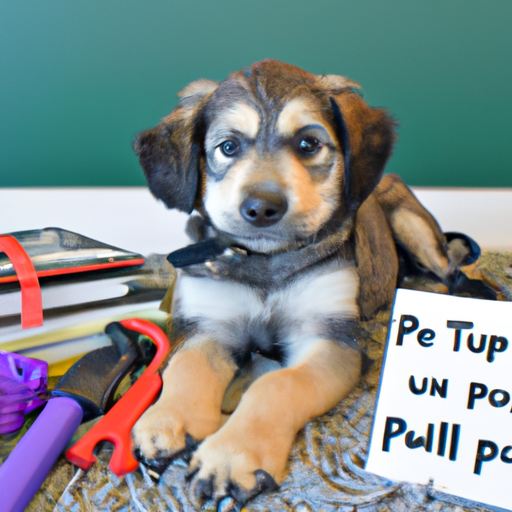A puppy’s first few months at home are crucial for their development and well-being. As a new puppy parent, you have a big responsibility. This guide is designed to provide you, the caregiver, with essential tips to raise a healthy, happy puppy.
1. Preparation Before Puppy Arrival
Before bringing your new furry friend home, it’s important to prepare your environment to ensure it is safe and comfortable for the puppy.
- Puppy-proof your home: Remove any small objects that the puppy might chew or swallow. Secure loose wires and cover sockets.
- Prepare a dedicated space for the puppy: This could be a crate or a fenced area where the puppy can relax and sleep.
- Buy essential supplies: This includes a leash, collar, food and water bowls, a bed, toys, and puppy food.
2. Feeding Your Puppy
Puppies have different nutritional needs compared to adult dogs. Here’s a simple table showing the recommended feeding schedule:
| Puppy’s Age | Meals Per Day |
|---|---|
| 2-4 months | 4 meals |
| 4-6 months | 3 meals |
| 6-12 months | 2 meals |
Remember to provide clean, fresh water at all times. Avoid feeding your puppy human food as it may cause health problems.
3. Training Your Puppy
Training should start as soon as the puppy arrives at your home. It includes house training, obedience training, and socialization.
- House training: Puppies need to be taught where to eliminate. Regularly take them to the designated spot after meals, naps, and playtime.
- Obedience training: Teach your puppy simple commands like “sit,” “stay,” “come,” and “no.”
- Socialization: Expose your puppy to different environments, people, and animals so they grow into a confident adult dog.
4. Veterinary Care
Your puppy’s health is a priority. Schedule regular vet visits for vaccinations, check-ups, and de-worming. Maintain a record of your puppy’s health history.
5. Exercise and Play
Puppies are energetic and require daily exercise to stay healthy. Playtime is also crucial for their mental stimulation.
- Exercise: Walk your puppy at least twice a day. Remember, too much exercise can harm their developing joints.
- Play: Engage your puppy in interactive games like fetch or tug-of-war. Provide chew toys for teething.
6. Grooming
Regular grooming keeps your puppy clean and healthy. It includes brushing, bathing, nail trimming, and teeth cleaning.
7. Dealing with Puppy Behavior Problems
Puppies might exhibit problematic behaviors like chewing, biting, or excessive barking. It’s important to address these issues early through positive reinforcement training.
8. Love and Affection
Lastly, shower your puppy with love and affection. Building a strong bond with your puppy is the most rewarding part of being a puppy parent.
Frequently Asked Questions
Q: How often should I feed my puppy?
A: Puppies should be fed multiple small meals a day. Refer to the feeding schedule in section 2.
Q: When should I start training my puppy?
A: Training should start as soon as the puppy arrives at your home. Start with simple commands and gradually move to more complex ones.
Q: How often should my puppy visit the vet?
A: Regular vet visits are crucial for your puppy’s health. Puppies require several rounds of vaccinations in their first year.
Q: How can I deal with my puppy’s behavior problems?
A: Address behavior issues early through positive reinforcement training. If the problem persists, consider seeking help from a professional trainer.
Q: How much exercise does my puppy need?
A: Puppies should have at least two short walks a day. However, avoid over-exercising them as it can harm their developing joints.
Raising a puppy is a rewarding experience. With these tips, you’ll be well equipped to provide the best care for your new furry friend. Enjoy the journey of puppy parenthood!



